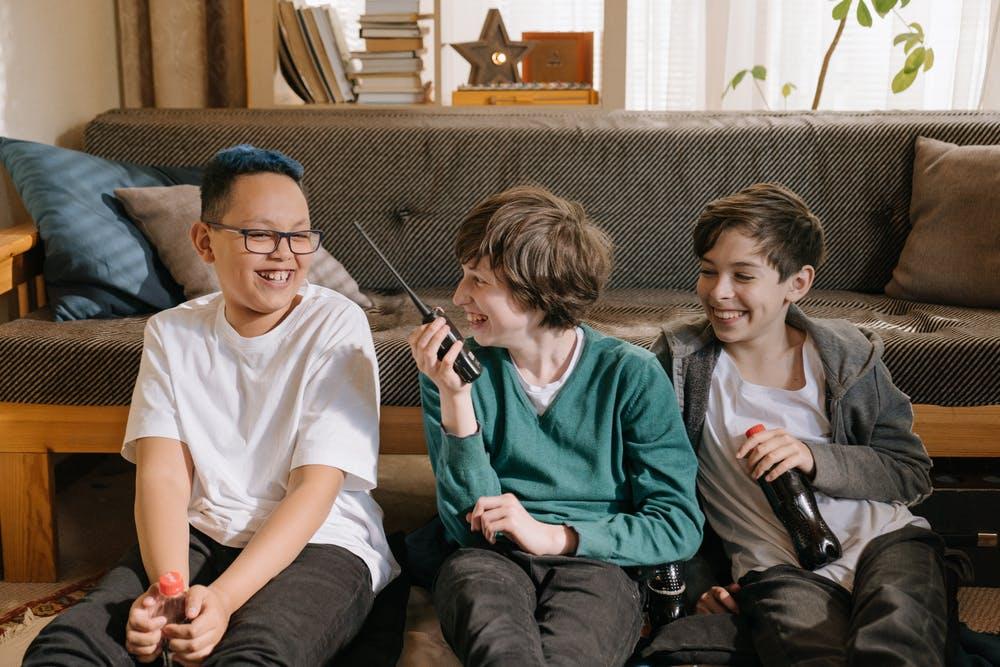You are entering an exciting and important stage of your parent-child relationship. You are now more than just a parent, you are a role model! Your child is learning how to respond to all the ups and downs of daily life, how to respond to upsets and disappointments, how to manage conflict, and how to build healthy relationships with others – all by watching how you do it!
Your child is developing their independence, but they still need routines and boundaries to help them feel safe and secure. You are still their safe base – their “go-to” person when they need support, comfort and guidance.
When children experience positive parenting they feel important, cared for, heard, respected, valued and loved. This strengthens their character, self-esteem, confidence and feelings of self-worth: priceless attributes to carry them through life.
What do we mean by positive parenting?
Positive parenting helps to build healthier relationships between you and your children and promotes family co-operation.

It helps you to be more sensitive, responsive and consistent in the way you interact with your child, and it makes your child happier, more optimistic and more motivated to choose positive behaviours.
When setting routines and boundaries bear in mind that your child’s behaviour is communication. It is telling you something – though it is not always easy to understand what it is saying!
Let’s look at some common behaviours in our 9-12 year olds:
9 year olds
Your child’s friends are becoming more important to them, and they are influenced by what their friends say and do. They may be starting to push against routines and boundaries that have worked in the past. There will be times when your child is loving and silly but also times when your child is argumentative and selfish. >
10-11 year olds
Your child is likely to push against routines and boundaries and will try to explain their behaviour through excuses and justifications.
12 year olds

Your child’s image and how they are perceived by friends and peers is very important to them. Your child may dislike going on family outings or being seen with you as their parent.
You may also see your child’s sleep pattern changing and they are likely to be going to sleep later at night and wanting to sleep later in the mornings. The NHS Live Well site covers teenage sleep patterns and tiredness.
If you are concerned about your child’s behaviour you don’t have to cope alone. Try speaking to your child’s class teacher - are they seeing the same challenges?
Setting routines and boundaries
Setting routines and boundaries help children to feel safe, cared for and important. Let’s have a look at some top tips to support:
- Be patient with your child.
- Think about your child’s age and stage of development and any additional needs they might have.
- Be clear and fair about what is expected from them.
- Explain calmly and sensitively why, for example, bedtimes and limited screen time is important for their healthy development.
- Be willing to give your child chances, to show you believe in them.
- If they make a mistake, or bad choice (which we all do at some stage!) let them know that it is the action that you are unhappy with, not them. Often your child at this age can be very hard on themselves when they make a mistake.
- Help your child to name how they are feeling.
- Children are more likely to follow routines and boundaries that they help create.
- Set some family rules. The Family Nurturing programme has a PDF to support meeting as a family to set some rules.
Top tips on building positive relationships with your children
- Hold in mind how important they are to you and you to them!
- Remind yourself, and your child, of their strengths and qualities, let them know you believe in them.
- Show your child you are interested in what they have to say and their words and feelings are important. Everything is important to your child at this age. If you don’t listen to the little things now, they won’t tell you the big things later.

- Role model the behaviour you want to see from your child.
- Spend some regular one to one time with your child so they feel valued, important and special. Even 20 minutes a day can make a big difference to your child’s behaviour.
- Remember it's normal when things don’t go according to plan, boundaries are stretched, routines are resented and emotions are running high. Believe in your ability to be a good parent, and acknowledge that maybe things didn’t go too well today and start over. We are all just human.
Further resources
Family Lives provides advice and support with video clips of parenting advice for a range of topics and age groups.
The NHS also has guidance on what to do if you are worried about your child’s emotional and mental health: When to use CAMHS
The NSPCC has information about good boundaries around IT and internet use that can be hard to set.
The Family Lives Parent Website has more information on positive behaviour management.
You might also like to try this free short course: Understanding the impact of the pandemic on your child.
See Five to Thrive for information on the building blocks of brain development.
